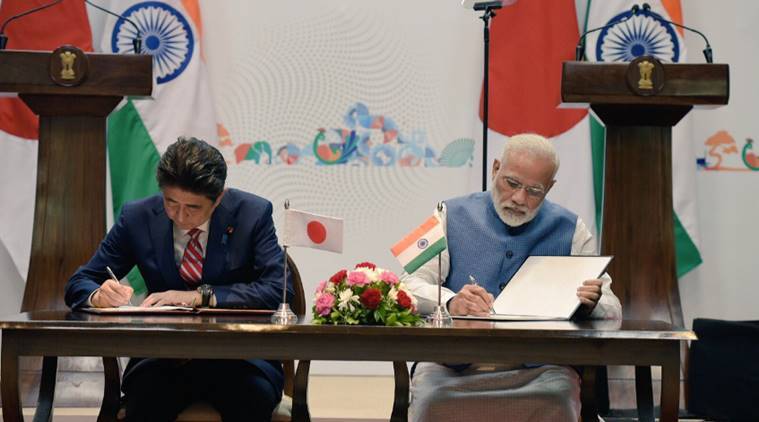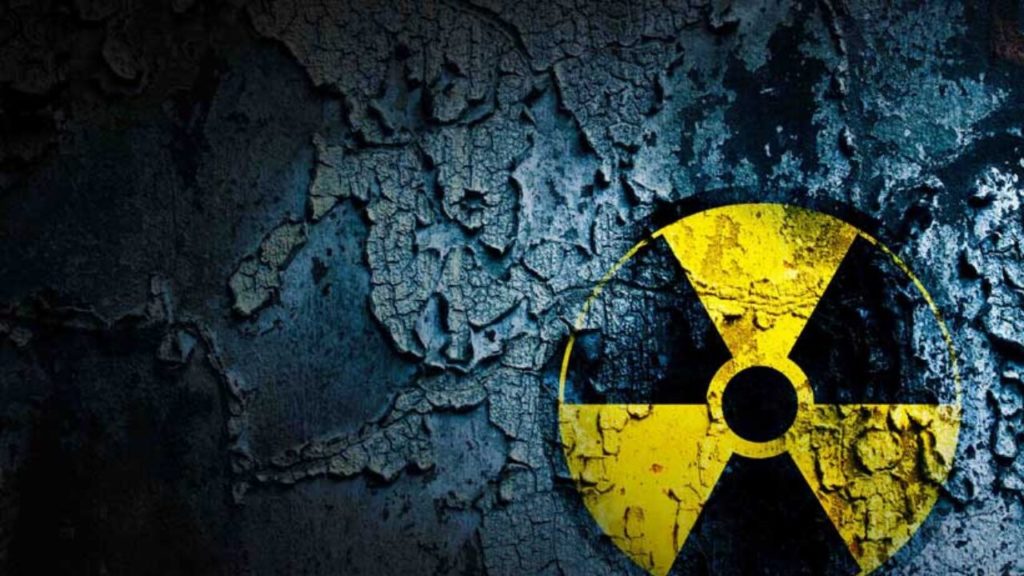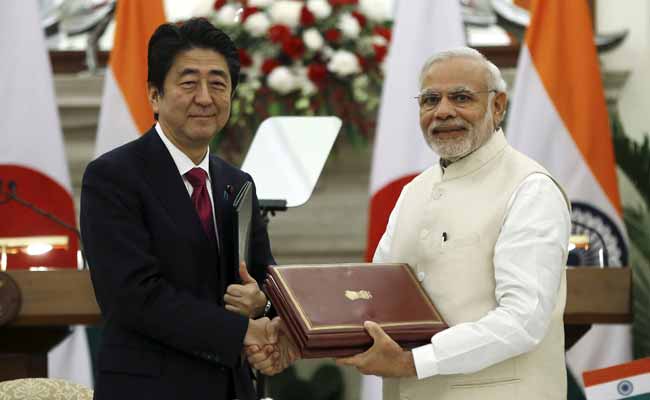India’s quest for enhancing its role in regional politics of South Asia by fighting with territorially adjoining nations has showed some terrible faces of New Delhi. Because the geostrategic thrust of Hindu leadership tried to establish bilaterally cordial and strategically robust relations with states beyond South Asia, it forces New Delhi to pursue an anti-neighborhood which is the central theme of New Delhi’s strategic thinking. Consequentially, Indian strategic mid-set stopped New Delhi from cultivating friendly ties with neighbouring nations and forced the mainstream Hindu leaders to construct bilateral ties with the countries beyond South Asia generally, and technologically developed nations specially. In this way, the thrust for stretching strategic muscle over the territorial and oceanic politics of South Asia has dragged New Delhi toward Tokyo. The leaders of both countries showed bilateral commitment for supporting each other while staying in the greater American alliance. Both countries are trying to invest their maximum strategic potential against the emerging common threats in the form of China. Their shared concerns forced leaders of the two sides to maintain robust partnership in various fields which will not only force both states to strengthen their standing in their respective regions, but also help them in countering China’s rise. The shared values in bilateral interaction generally cover the military-to-military cooperation in the maritime politics of Asia-Pacific and Indian Ocean.
The ongoing naval exercises Malabar is an appropriate case of Tokyo-New Delhi cooperation in the sea-lanes. Malabar was originally a joint naval venture between the United States and India which started before 1998, but Vajpayee’s decision of testing nuclear weapons and proclaiming India’s nuclear armed status temporarily halted the naval cooperation between New Delhi and Washington. Japan’s participation is considered to be an addition of third state in Malabar. In 2007, Tokyo’s inclusion in naval exercises transformed the naval alliance from bilateral to a trilateral dimension. On January 26, 2015, Indian and American leaders decided to hold the Malabar by upgrading it foundations which declared Japan as a permanent participant of bilateral exercises. In this way, these three countries conducted exercises in the Bay of Bengal in October 2015. Tokyo’s navy sent the JS Fuyuzuki for Japanese representation in trilateral exercises. The 21st edition of the Malabar was held in India in July 2017 where Japan’s Maritime Self Defence Force (JMSDF) actively participated. Now, India and United States are agreed on Japan’s inclusion in annual naval exercises, Indo-US leaders mutually are willing to enhance Japanese navy’s role in Malabar. In addition to trilateral cooperation in sea-lanes, Indian and Japanese navies conducted a bilateral naval exercise JIMEX12 in 2012.
Japan views India as an important player in the India Ocean which could be Tokyo’s partner in oceanic politics. The state authorities from both sides are much concerned about the emerging politics in the waters of South China Sea and East China Sea. The genesis of naval cooperation between the two countries are inherited in Alondra Rainbow incident of October 1999 when the Panamanian-registered MV Alondra Rainbow, a Japanese cargo ship, was hijacked by pirates. The ship was later rescued by Indian navy and towed to Mumbai. The aftermath of this incident resulted in Tokyo-New Delhi maritime collaboration, and both nations mutually arranged a Coast Guard exercise. The creation of Tsunami Core Group further brought the two countries closer along with the American and Australian navies. The group of four states was created in 2004 to provide rapid and effective relief to Tsunami effected areas around the Indian Ocean. Naval officers of India and Japan are agreed on carrying out anti-piracy efforts in the Gulf of Aden. Moreover, various maritime domains have been selected between the India and Japanese navies as significant areas of bilateral cooperation. The bilateral collaboration in oceanic waters has become one of the most significant area of broader security cooperation between Indian and Japanese authorities.

The cooperative basis of security collaboration between two states has gone beyond maritime domain. In 2016, a landmark improvement witnessed the bilateral strategic collaboration of Tokyo and New Delhi when Prime Minister Modi and with his Japanese counterpart signed a historical nuclear deal. Modi’s three days visit to Tokyo concluded the nuclear deal for civil purposes in November 2016. The deal allowed New Delhi to get benefit from Tokyo in the nuclear field, and enabled Japan to transfer fuel, technology and nuclear reactor to India for peaceful purposes. Japan, a major player in the nuclear market, is willing to support Indian nuclear program by activating its companies such as Westinghouse Electric, owned by Toshiba to build six nuclear reactors in India. The construction of planned nuclear reactors are designed to be completed by 2032.
Mainstream state authorities from both sides have successfully finalized the civil nuclear deal after six years of dialogue under their broader strategic partnership. Tokyo is willing to help Indian nuclear program without calculating its effects on other South Asian states. Japan, a major proponent of international non-proliferation regime and a main advocator of creating the world free of nuclear weapons, is determined to provide nuclear assistance to a non-member of NPT. In this way, India has become the first state very rapidly gaining access to international nuclear market without subscribing to international non-proliferation regime. Tokyo’s continued support to New Delhi’s nuclear program even for civil purposes can have a worse impact on South Asian strategic environment.
The nuclearized subcontinent with Indo-Pak rivalry has become a serious point of attention for the international community. The regional strategic equation of South Asia is a point of high concern for great powers which are rapidly cultivating their strategic partnerships with India on one hand. On the other hand, India is trying to upgrade its strategic muscle on the foreign supplies by developing strong strategic partnerships with super powers. Such approach is constantly enabling New Delhi to obtain its desirous hegemonic status in the South Asian region. Hence, the opening of Japanese nuclear doors for India, no doubt, is in Tokyo’s best interests in Indo-Pacific region, but its future implications for broader South Asian regions are still unnoticed. The hawkish regimes of two states under the Shinzo Abe and Narendra Modi leadership are committed for upholding each other in their respective regions while mutually countering the common threats associated to China’s peaceful emergence.
The reciprocal meetings of these leaders have resulted in numerous areas of cooperation which have helped both states in supporting each other. For Tokyo, India is a potential market of Japanese products, and New Delhi is an advantageous destination for Japanese arms export. For New Delhi, Japan, a technologically advanced and industrially developed state is a suitable partner for helping India in meeting its economic and strategic objectives. In this way, New Delhi has become Tokyo’s most important third strategic partner, after the United States and Australia. Tokyo has become New Delhi’s most important strategic partner in Asia after the United States. So, both countries are the part of American strategic vision of Asia-Pacific and Indian Ocean regions. It is the open competition between the United States and China which has activated the secondary relationship of two states who are highly ambitious for maintaining their regional hegemonic positions. Both India and Japan have crafted a wide range of bilateral avenues for security and defence cooperation. Such an alliance apparently reflects the zenith of bilateral relations between two states, but the implication of their cooperating domains are very appalling. The military-to-military relations exclusively in the naval domain along with collaboration in the nuclear field portray an awful picture of South Asian strategic environment.

Japan shows its ambition globally of creating a nuclear free world because it is the only country which became a victim of a nuclear attack in the world. By signing the nuclear deal with India, Japan has ignored Modi’s aggressive polity which is consistently emphasizing on maximization of New Delhi’s nuclear weapon program. In nuclear politics, the Modi government is much concerned about Pakistan-Japan relations in which Tokyo has not developed its critical position over Islamabad’s nuclear capability. Pakistan, a state mainly effected by Indian strategic thinking and the only state containing substantial potential for balancing the South Asian region against New Delhi’s belligerent behaviour, has cooperative relations with Japan which could be a main point of worry for Modi administration. Moreover, Tokyo and New Delhi share complementary strategic visions which lack an identical foundation, both are obsessed with anti-Chinese and pro-American policies. As active partner of greater American alliance, the two governments view negatively China’s rise. In this way, the emerging Sino-Pak relations and their economic strings under the mega corridor project (China-Pakistan Economic Corridor, CPEC) are the main points of worry for the Modi regime which could affect the Islamabad-Tokyo friendship. Modi government is obsessed with anti-Sino-Pak policies and has already started a campaign against CPEC while taking advantage of greater American support. Therefore, India with the support of United States and Japan can augment its position against Beijing-Islamabad cooperative ties and can effect Islamabad’s position in the South Asian region.
No doubt, the strategic encounters between leading state authorities from Japan and India are considered to be a form of American security objective in Asia-pacific region but their alliance under the United States has greater implications for South Asia. Now the leaders of India and Japan are willing to cooperate in multiple areas of strategic interaction and ready to move forward against the future challenges. The two-sided state authorities are presently not only ambitious for mutual future cooperation, but they are willing and determined in broadening of their collaborations in the fields of defence and security. Contemporary Abe-Modi diplomacy is rapidly placing their nations closer to each other and the governments from both sides are developing their common areas of cooperation which will become an area of great concern for Pakistan in the future. Therefore, the state authorities from Islamabad need to take appropriate measure against Modi’s evolving Japan policy. A pragmatic approach based on practically applicable policies can provide Islamabad adequate chances for securing the diplomatic cooperation with Japan. Such approach could further help Islamabad to counterweight Modi’s increasing worldwide anti-Pakistan campaign.




